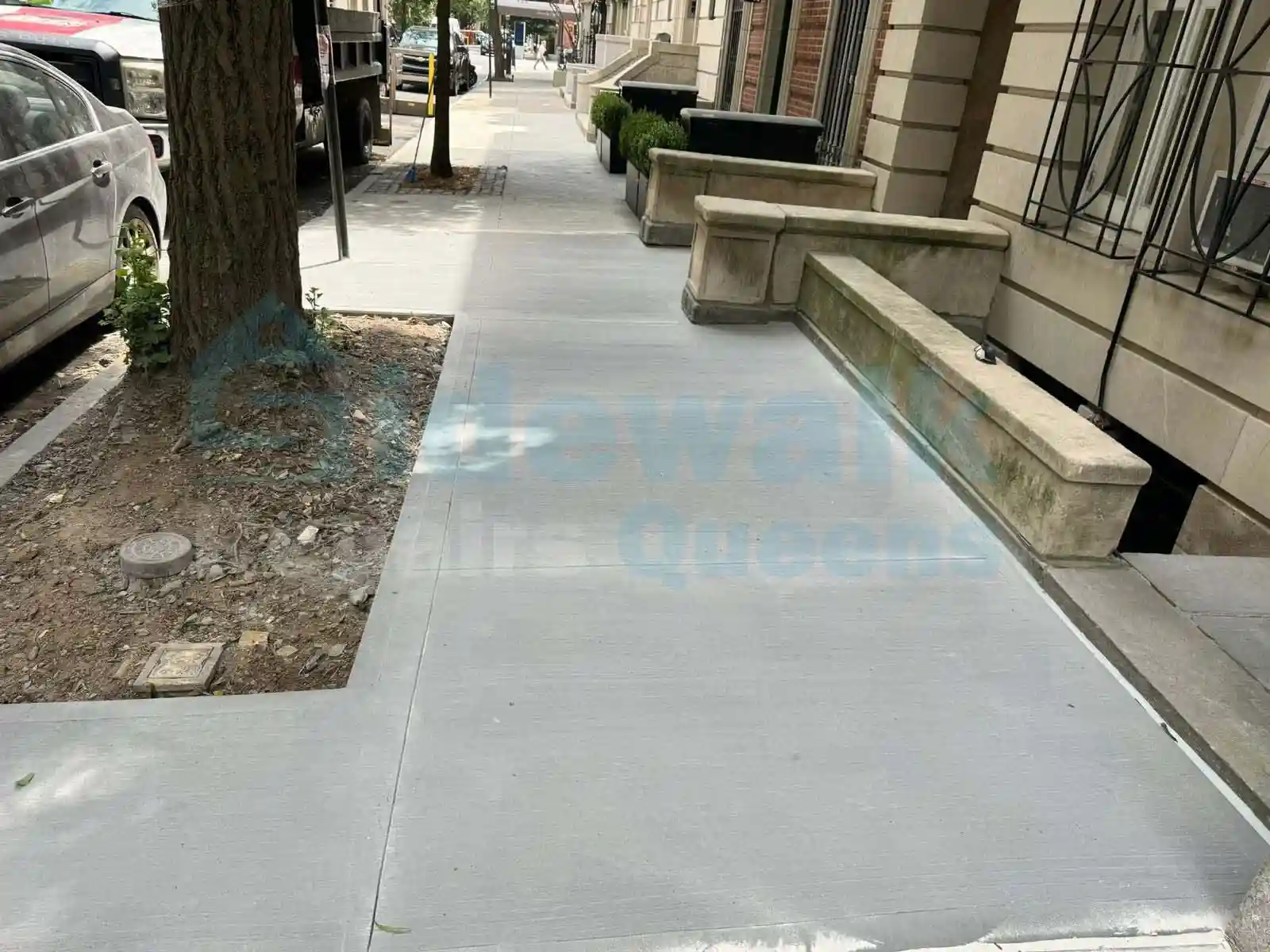
What are the Risks of Ignoring Damaged Sidewalks?
There are many to begin with such as a DOT (Department of Transportation) violation notice, safety hazards including trip risks, and possible injury cases from others that could leave you paying heavy fines under Section 7-210 of the NYC Administrative Code. For property owners in New York City, the damaged sidewalks can be a source of stress and legal complications if left ignored long. Properly maintained sidewalks provide safe spaces for pedestrians, children playing, people walking their dogs, and even delivery workers hauling packages. But when sidewalks crack, sink, or lift, they stop being safe and ignoring the problem doesn’t just make things worse, but also it can cost you time, money, and peace of mind.
If you’ve ever thought, “Must I get this fixed right now?” The answer is simple yes. Here’s why delaying sidewalk repairs can be risky for both property owners and the community.
DOT Violation Notices and Fines
Within New York City, property owners must make sure the sidewalks bordering their property are properly maintained. If the DOT inspects your block and finds cracks, holes, or uneven slabs, you may receive a violation notice. This isn’t just a warning as you’re given 75 days to make repairs. If you fail to do so, the city may hire its own contractor, fix the sidewalk, and then bill you at a much higher cost than if you had hired a contractor yourself. Ignoring this notice will have further penalties knocking on your door.
Trip Hazards and Injury Liability
Even a half-inch rise in the pavement can create a dangerous trip hazard. For pedestrians, in specific to seniors, children, and people with mobility challenges, are likely to face severe falls. If someone gets injured in front of your property because of damaged sidewalks, it is highly likely that you will be held accountable in a legal sense. Compensation claims may cover medical expenses, lost income, and damages for both physical and emotional suffering. In short, ignoring repairs does harm not only your financial security but also the health of others who could be more vulnerable to injuries.
Lawsuits Under NYC Administrative Code
Section 7-210 of the NYC Administrative Code states clearly that property owners are liable for injuries caused by failing to maintain sidewalks in a good condition where safety is not at risk. Put simply, if an accident happens because of your damaged sidewalk, you’ll be the one facing the lawsuit. Legal complications can continue for months, and even if you win, the cost of attorneys and court fees adds unnecessary stress and expense. Simply repairing sidewalks early helps you avoid this entire scenario.
Accessibility Issues and Community Impact
Sidewalks are meant to be safe for everyone including wheelchair users, parents with strollers, and neighbors walking with canes. Damaged sidewalks can make daily walking unsafe which means there will be lack of accessibility. Beyond the legal and financial risks, ignoring sidewalks makes your property less welcoming and less community-friendly. A smooth, safe sidewalk is part of your responsibility as a NYC property owner.
Escalating Repair Costs
Sidewalk damage never stays small. A crack today may seem minor, but water, snow, and ice make it expand. Tree roots push slabs higher over time. What could have been a small patch-up repair can quickly turn into a full sidewalk replacement, costing thousands of dollars. Tackling damage early will help you to have a peace of mind and keep your wallet from being completely empty.
Decreased Property Value and Curb Appeal
One of the first things people notice about your property is the sidewalks. Cracks, weeds, or uneven slabs make it look neglected. Potential buyers or tenants may see damaged sidewalks as a sign of poor maintenance overall, lowering your property’s market value. On the flip side, well-maintained sidewalks make your property have its charm and this reflects responsible ownership.
Don’t Let Sidewalk Damage Cost You More
Ignoring a damaged sidewalk may feel like saving money in the short term, but it actually will lead to bigger bills, city fines, lawsuits, and lower property value. For NYC property owners, sidewalks are a legal responsibility under the Section 19-152 Administrative Code and a reflection of your care for safety and community.
Taking action early, whether by hiring a licensed contractor or applying for the free Trees & Sidewalks Repair Program if tree roots are involved, will make sure you get to avoid penalties, protect pedestrians, and as well maintain your property’s value.
In short: a safe step today saves you stress tomorrow.